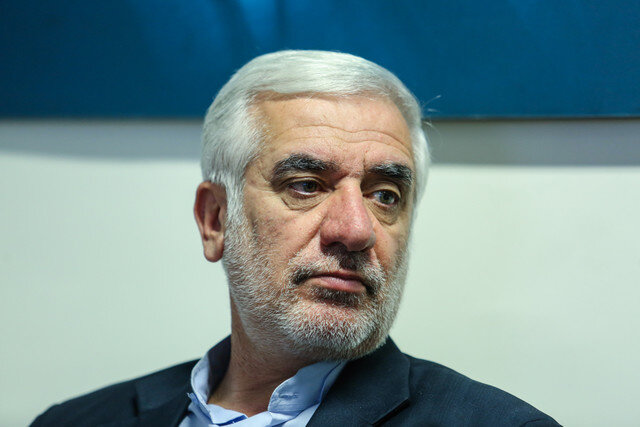Saudi Arabia can be Iran’s ‘strategic partner’, MP says

TEHRAN - Mohammad Javad Jamali Nobandegani, the deputy chairman of the Majlis National Security and Foreign Policy Committee, has said that Saudi Arabia can be a “strategic partner” of Iran if it abandons following the United States.
“If Saudi Arabia abandons animosity and stops blindly obeying America it can have a good strategic partner like the Islamic Republic, which will be to the benefit of all regional countries and Muslims,” Jamali Nobandegani told ISNA in an interview published on Friday.
The MP said Iran and Saudi Arabia have a common religion and have joint borders,” he said.
He added that Iran has always “extended hands of friendship to its neighbors”, citing Qatar as an example when Iran opened its arms to the country when it was surrounded from land, sea and air by Saudi Arabia and the United Arab Emirates.
“Iran has always announced that it has no fundamental problem with its neighbors and extends friendship hand to them. As a powerful country in the Persian Gulf region, we are ready to be a safe harbor for our neighbors,” he noted.
Abdullah al-Muallemi, the Saudi envoy to the United Nations, said on July 18 that Saudi Arabia seeks “diplomatic interactions” with Iran.
“Saudi Arabia does not want war with Iran, neither in Yemen and nor anywhere else,” the Mehr news agency quoted him as saying.
Among the six countries member to the Persian Gulf Cooperation Council, Iran enjoys good relationship with Oman, Qatar, and Kuwait.
Iran also had good relationship with Saudi Arabia, the United Arab Emirates and Bahrain. However, Saudi Arabia and the UAE changed their tact toward Iran as Tehran seriously entered nuclear negotiations with the 5+1 countries – the five permanent members of the UN Security Council plus Germany – to end more than a decade of nuclear standoff with the West. Saudi Arabia was so unhappy with the negotiations that it even sent its then foreign minister Saudi al-Faisal to Vienna, the venue of the talks, in November 2014 to undermine the process of nuclear negotiations.
Saudi Arabia and the UAE are also unhappy with Iran which has strongly criticized their senseless war on fellow Arab nation of Yemen. Iran has also condemned the Saudi suppression of pro-democracy movements in Bahrain.
In addition, the relationship between Iran and Saudi Arabia started nosediving with the new leadership in Riyadh. Saudi Crown Prince Mohammed bin Salman has used the worst insults against Iran and compared Iran to the Nazi Germany.
Donald Trump, a real estate magnate who succeeded to win the post of president in the U.S. in 2016, has also misused the frosty relationship between Iran and Saudi Arabia to sell more arms to Saudi Arabia and the UEA.
Regrettably, Saudi Arabia, the UAE and Bahrain also welcomed the United States’ exit from the 2015 nuclear deal and reimposition of sanctions against Iran. Saudi Arabia and the UAE have even promised Trump to pump more oil to the market as Washington has threatened to drive Iran’s oil exports to zero.
In addition, certain rulers in the UAE and Saudi Arabia repeat the claims by Israeli Prime Minister Benjamin Netanyahu that Tehran is trying to revive the Persian Empire.
Iranian Foreign Minister Mohammad Javad Zarif said in May that he has proposed the “regional non-aggression pact” with Persian Gulf Arab countries during a three-day trip to Iraq.
“In #Iraq, where I’ve held substantive and productive meetings with the President, PM, Speaker, FM & leadership of two parliamentary coalitions. Proposed regional non-aggression pact: #NeighborsFirst,” Zarif tweeted.
Deputy Foreign Minister for Political Affairs Abbas Araghchi has said that a “regional non-aggression pact” will pave the way for neighboring countries to build trust and have constructive interaction.
NA/PA
